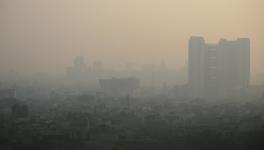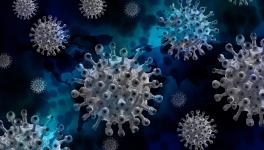After COVID Vaccine Menstruation Findings, a Sigh of Relief — and Indignation
woman of reproductive age receives the COVID vaccine in Cologne, Germany
Soon after the rollout of COVID-19 vaccines, stories began to emerge that some people were experiencing changes to their menstrual cycles after getting vaccinated.
For a long time, this did not get much media attention, and numerous medical experts continued to assure the public that the COVID-19 vaccines did not cause these side effects. Such stories remained confined to conversations, internet forums and social media.
I received my own first dose of the BioNTech-Pfizer vaccine in summer. Though some people had told me how sick they felt after receiving it, I was relieved to have only moderate side effects.
A month later, I got my second dose — and then off we were, on family vacation.
I was scheduled to get my period right at the start of the trip. I had one day of heavy bleeding, none at all the next day.
Sonya Diehn is a senior editor at DW
Then, I proceeded to bleed for more than a week, nearly the duration of the vacation. The bleeding was quite heavy, and I also had more pain than usual. For me, this was not normal.
I got scared. I had read about an extremely rare blood-related side effect of mRNA vaccines, immune thrombocytopenia — a lack of platelets — and was concerned this could have been happening to me, with excessive vaginal bleeding as a possible symptom.
I felt anxious and did some serious consulting with Dr. Google. Eventually, the bleeding let up and the mega-period finally finished.
And, though I felt alone in my fear and anxiety, I most certainly was not.
COVID vaccines can affect menstruation
Now, a first-of-its-kind, women-led, peer-reviewed study has confirmed the experience of people who menstruate around the world: COVID-19 vaccines can affect periods.
With a dataset of almost 4,000 women, both vaccinated and not, using a menstrual cycle-tracking app, researchers found a clinically significant shift in the cycles of newly vaccinated individuals, lasting nearly one day longer on average.
Cycles typically returned to normal within a month or two, which was the case with me, as well.
This research has given women like me a sigh of relief — what I experienced was abnormal, but normal — and yet I'm left with a lot of questions.
Most importantly: Why were we not informed of this potential side effect before receiving the vaccine?
It turns out that menstrual information is not tracked in clinical studies of COVID-19 vaccines. Not to mention, menstrual side effects are not tracked in VAERS, the United States-based database that allows vaccine recipients to enter possible side effects themselves.
This is frustrating — women deserve to be listened to, and everyone deserves to be informed.
Despite its importance for women's health, talking about periods remains largely taboo
Genuine complaints brushed away
Menstruation is among the most basic benchmarks for the health of women in reproductive age, so any changes are a big deal. Yet talking about menstruation remains taboo.
Time and again, reports of altered cycles after receiving COVID-19 vaccines have been minimized and dismissed — especially by well-meaning proponents of vaccination trying to counter unfounded claims that vaccines could harm fertility.
Even after the menstruation study was released, I was reading headlines that downplayed its conclusions.
Of course, some people experienced no changes in their menstrual cycles, or none that they noticed. But the lack of information could have a strong psychological effect on people who do experience significant changes without knowing why.
Perhaps they were trying to get pregnant. Or perhaps they were hoping to avoid pregnancy. Perhaps, like me, they felt anxious or fearful about not being "regular."
Criticism or caution about vaccines is often swept aside as being irrational or the delusions of conspiracy theorists. Yet it should be possible to discuss any legitimate issue without shame or punishment.
Against the background of the ongoing culture wars around vaccines, I am as pro-vaccination as it gets. But this experience shook my position.
I don't feel like science has failed here; I feel like people have failed. In their zeal to prove that vaccines are safe, vaccine proponents ignored actual experiences.
As a result of medical experts not listening to valid concerns, it's possible that some women have lost faith in vaccination.
We need to remove the taboos around discussing periods. We need to make female reproductive health more central in education and health care.
Society, and science, need to listen to women.
If not, both may suffer.
Get the latest reports & analysis with people's perspective on Protests, movements & deep analytical videos, discussions of the current affairs in your Telegram app. Subscribe to NewsClick's Telegram channel & get Real-Time updates on stories, as they get published on our website.


























